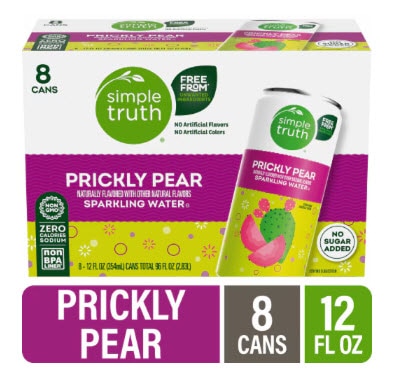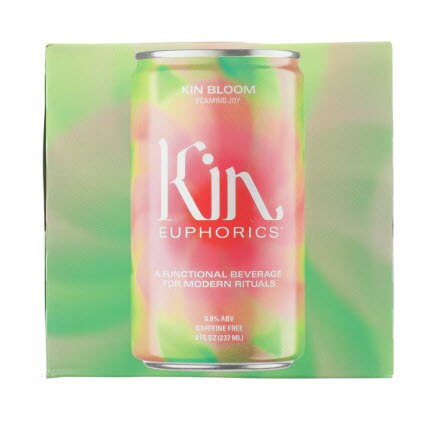Caffeine is more accessible to teens than ever before. There are flavored coffees, ice teas, energy drinks, energy shots and sodas. Even some energy bars, chocolate bars and gum contain caffeine. While soda is still the number one source of caffeine for teens, coffee and tea are a close second.
Research shows that about 83% of adolescents consume caffeine frequently, and a third of them chug caffeine-packed, sugar-laden energy drinks regularly. According to new guidelines from health experts, that’s about 83% too many teens.
An advisory panel composed of members from the Academy of Nutrition and Dietetics, the American Academy of Pediatric Dentistry, the American Academy of Pediatrics, and the American Heart Association, warned that children and teens ages 5 to 18 should avoid caffeine. While experts say about 400 milligrams (mg) is safe for adults, there are no guidelines for what’s safe for children and teens.
Previous guidelines suggested limiting caffeine consumption to a maximum of 100 mg for teens 12 to 18. This may be a reasonable goal considering the number of foods and beverages that contain caffeine, but none is better than some.
What can caffeine do to your teen?
Caffeine is technically a stimulant drug with mild addictive qualities. Many kids and adults consume caffeinated beverages to help boost energy and stay alert. However, kids respond at much lower doses to caffeine than adults. Consider the fact that a Starbucks Grande (medium-sized for those who don’t speak Starbucks) coffee has between 315 and 390 mg of caffeine.
So, while it’s not concerning if you, as a parent, start your morning with a couple of cups of coffee, consuming too much caffeine can cause a range of physical and mental health issues for your teen. Some of the most concerning ones include:
- Insomnia
- Anxiety and depression
- Heart complications
- Headaches
- Loss of appetite
- Hyperactivity
Additionally, because many caffeinated drinks, such as energy drinks or fancy coffee drinks, are often accompanied by high amounts of added sugar, teens who consume these beverages daily run the risk of being overweight or obese.
Long-term overuse of caffeine can lead to even more problems for your child. They can become extremely irritable and stressed, which can impact school performance and friendships. They can develop an addiction to coffee, which results in cravings for more and potential withdrawal symptoms such as headaches if they don’t get their caffeine fix. Additionally, experts are concerned that addiction to caffeine can lead to using other substances such as alcohol and nicotine.
Although death is rare, it is possible to overdose on caffeine. Signs of caffeine overdose include:
- Vomiting
- High blood pressure
- Racing heart
- Heart rhythm problems
Caffeine-related emergency rooms have doubled for middle school and high school-aged kids in recent years.
How to talk to your teen about caffeine
While there are no catchy phrases like “Don’t drink and drive” or “Just say no” when it comes to caffeine, it’s still important to discuss the issues and risks related to caffeinated drinks. You can help your teen by just sharing information about, for example, how caffeine can interfere with sleep and how much caffeine is actually in their favorite energy drink or iced tea.
First, educate yourself on the amounts of caffeine in different products, including products you wouldn’t think had caffeine, such as decaf coffee or chocolate. If a product has the word “energy” in the title, it’s likely to have caffeine.
Then, teach your teen where to look for that information on food and beverage labels. One study found that more nutritional knowledge was associated with lower caffeine consumption.
It’s essential to set goals as a family as to what your teens’ limits are regarding caffeine, just as it’s important to discuss limits with smartphone use, drugs, and alcohol.
How to help your child cut back or eliminate caffeine
For starters, you can stock your refrigerator and pantry with healthy alternatives such as low-fat milk, flavored seltzer, herbal tea and fruit juice. Note: your teen should drink fruit juice in moderation because of its high sugar content. Water is the healthiest source of hydration.
If your teen is turning to coffee or energy drinks in the morning because they’re tired, encourage them to go to bed earlier to get adequate sleep. Turning their smartphone off or putting it out of their room an hour before bedtime can help. Additionally, eating healthy and exercising will help your teen with sleep and develop healthy habits in general that can help curb caffeine cravings and consumption.
At your next well-child exam, discuss caffeine and your concerns with your doctor so your teen gets advice and recommendations from someone other than a parent. If you’re concerned that your child is addicted to caffeine, your pediatrician can help devise a plan to slowly reduce your child’s caffeine intake and reliance.
And lastly, model good habits. If your child sees you reaching for water instead of coffee or an energy drink more frequently, it’s more likely they will follow suit.




